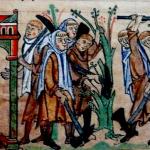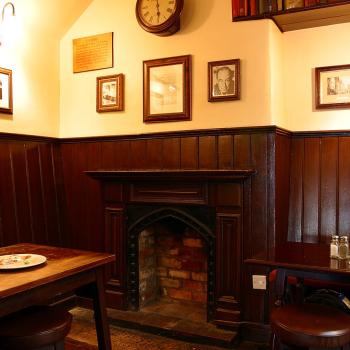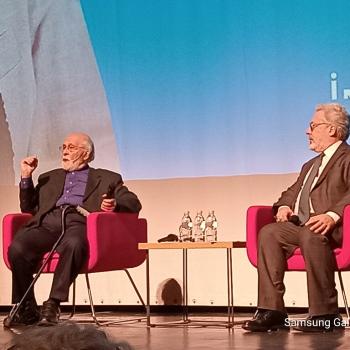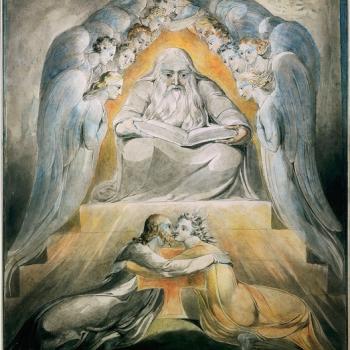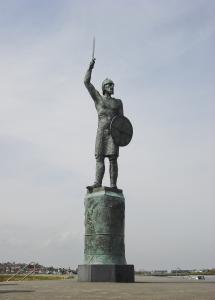
Many Tolkien enthusiasts, mostly as a result of their interest in Middle Earth, misunderstand Tolkien’s sentiments. They try to use his writings to promote ideological positions which run contrary to his own beliefs and desires. This phenomenon began when he was alive, but it has only become much worse over time. Now, many of his readers try to use his works to promote sexism, racism, and warmongering, among other views which would have disgusted Tolkien. The rise of an “alt-right” reading of Tolkien also explains the criticism given to productions of his work which stand more in line with Tolkien’s own sentiments than theirs. They want him kept in a small little corner, with only one version of his tales, their version, allowed, instead of accepting the complex mythological conception Tolkien had for Middle Earth. To be sure, as it is myth, there is an allowance for all kinds of interpretations, including those which run contrary to Tolkien’s own views, but this does not mean we can or should ignore the beliefs he held and how they molded his own stories. He wrote primarily to entertain himself, and his friends, but also to do so in a way which reflected his own lived-experiences, such as the horrors they encountered during World War I. Understanding those experiences will help make sure that Tolkien’s own viewpoints, which make their way in his writings, are not misinterpreted. He should not be made into a representative symbol for beliefs and practices which he stood against. For example, his work should not be seen as promoting some sort of chivalric honor code nor some sort of romanticism of war, but instead, they show he was rather ambivalent to both.
For Tolkien, as with many other survivors of the First World War, war was understood truly to be hell. While he survived the war, in part, because he was injured and so taken off the battlefield, he saw many of his close friends brutally killed. This left a mark upon him for the rest of his life. It made him realize war should never be taken lightly, nor it should ever be romantically glorified. But he was not a complete pacifist. He understood war could become necessary when some great evil is at work in the world, as, for example, if some would-be dictator began invading other countries, turning them into playthings for his or her sadistic wrath. The only response to such evil is to try to stop it, preventing it from becoming worse; doing nothing, allowing that evil to grow and fester, can quickly become criticized as a kind of sin of omission. War might be necessary, but it must also be examined and criticized in reflection, making sure that those who engage it do not glorify themselves or the war, for if they did so, they could quickly become like the monsters they are trying to overcomes. Sadly, Tolkien thought, only those who have experienced the horrors of war will truly understand the evils involved in it. The valiant deeds of those fighting in such wars, not the horrors of war itself, will most likely be remembered by subsequent generations, because it is those stories which are told. Tolkien believed if such glorification of the heroes of a war is not tempered with stories concerning the brutality of war, and the evil which is done in war, future generations will eventually lose sight of the true evil of war, allowing them to be much more easily led to embrace it even when it is not necessary:
The utter stupid waste of war, not only material but moral and spiritual, is so staggering to those who have to endure it. And always was (despite the poets), and always will be (despite the propagandists) – not of course that it has not is and will be necessary to face an evil in the world. But so short is human memory and so evanescent are its generations that in only about 30 years there will be few or no people with that direct experience which alone goes really to the heart. The burnt hand teaches most about fire. [1]
Tolkien understood that war should not be treated as if it were a game, and yet that is exactly what many did in medieval Europe. They created rules for war as if war was a glorious contest, rules which created the conditions for contestants to have equal standing in battle. And, once it was taken in that regard, it was easily romanticized, with the combatants being given the status that is now often given to sporting legends. Various poets, in their descriptions of war, in the gallantry they made for it, helped also in presenting such a romanticized version of war, and in doing so, they helped further develop the rules and expectations placed upon those going to battle, doing what they can to enhance the rules of chivalry so that medieval elites, those who could and did read the stories they wrote down, would be encouraged to share in with the great game being presented to all.
Tolkien also knew, and often studied, poets who understood the problems underlying the system of chivalry. They often saw the spirit of chivalry often created conditions which led to the defeat of those who followed its directions in their lives. Not everyone would follow the chivalric code, and fighting against those who did not leave those who did at a severe disadvantage. To be sure, this criticism was not meant to suggest that anything could and should be done in war to win; there were moral standards which were expected for just wars. But, what was important is that those moral concerns should not be confused with the artificial honor code of chivalry, a code which always made battle seem more like a sport than anything else. That is, it is one thing to have moral rules which must always be obeyed; that is not the problem; it is when battle follows other, arbitrary rules so that the battle becomes a sporting contest, a game, that leads to major problems. Tolkien learned this lesson, not only through his own experience of war, seeing the horror of it which made sure he could never see it in such a light, but also through his own studies and writings on medieval literature. He found many of the texts he studied had undercurrents in them which were critical of the gallantry of the knights and their notions of chivalry. Be it the story of Sir Gawain, or the poetic fragment related to the Battle of Maldon, Tolkien took a keen interest and found himself in agreement with their writers are they questioned or deconstructed the order of chivalry in their verse. For example, Tolkien pointed out how the chivalric code broke Gawain down in the story of Sir Gawain and the Green Knight. Indeed, the way the chivalric code had him place himself under the trust of a “sovereign lady” ultimately had to be undermined:
And so we end. Beyond that our author does not take us. We have seen a gentle courtly knight learn by bitter experience the perils of Courtesy, and the unreality in the last resort of protestations of complete ‘service’ to a lady as a ‘sovereign’ whose will is law; and in that last resort we have seen him prefer a higher law. [2]
The Battle of Maldon went further than the author of Sir Gawain, for, as Tolkien explained, it focused on the way the chivalric code could and would hurt not just those nobles who embraced it, but upon the people who relied upon them. Byrhtnoth, the noble lord who fought and died at the battle of Maldon, died, in part, giving in to the rules of chivalry, following them even when his Viking opponents did not. He did not just obey the rules of the game for himself, he expected his subordinates do so as well, even if that mean they would suffer the same cruel fate as he had. His Viking opponents understood this, and though they did not embrace the chivalric code for themselves, they asked Byrhtnoth to do so, asking him to let them cross over to land so that then no one would have an undue advantage over another. They asked, as it were, for him to give them a fair fight while never intending to fight fair themselves. Thus, it is suggested that they tricked Byrhtnoth, using the system he followed in order to gain an easy victory for themselves. Many needlessly suffered and died as a result of the way Byrhtnoth took and understood the battle:
It was heroic for him and his men to fight, to annihilation if necessary, in the attempt to destroy or hold off the invaders. It was wholly unfitting that he should treat a desperate battle with his sole real object as a sporting match, to the ruin of his purpose and duty.[3]
Though Byrhtnoth embraced the honor system, his code of conduct led to a brutal waste; it was a code of conduct, not based upon basic rules and obligations expected to make sure war was ethically waged, but rules which allowed it to be treated as a sporting event: he was playing a game, while the Vikings were not. And so, while Byrhtnoth fulfilled what was expected of him, the end result was that he let himself, and his people, down. “Magnificent perhaps, but certainly wrong. Too foolish to be heroic. And the folly Beorhtnoth at any rate could not wholly redeem by death.” [4] Byrhtnoth was foolhardy, but he was not the only one who was; it was a common problem thanks to the way war had become romanticized and treated by the poets. The problem was systematic; as long as the chivalrous spirit was promoted without questioning, the end result was predicable: foolish lords, taking things too lightly, will not fight the battle as they should, allowing all the horror and destruction which comes out of war to be significantly increased. Loyalty, which to be sure is a virtue, was often misplaced in the medieval system, and so many good people lost their lives because their sovereign did not care about them as much as about the game they thought they were was playing. Even the story of Beowulf, Tolkien believed, demonstrated this problem, making it, therefore, a theme which tied three major literary interests of his: “It is no accident that in this poem [Sir Gawain], as in Maldon and in Beowulf, we have criticism of the lord, of the owner of the allegiance.”[5] We can perceive some of this play out in Tolkien’s own works, such as in The Lord of the Rings, wherein we find Theoden let himself to be foolishly led by Wormtongue, causing his people to suffer great harm as a result. Denothor, the Steward of Gondor, likewise wanted to have his sovereignty followed, even if it meant he took down the lives of those he cared for, like Faramir. In The Hobbit, Thorin also engaged this kind of folly, though in the end, thanks to the not-so noble “thief” Bilbo, he was able to die making amends for his failure. Far from glorifying the medieval system of chivalry, far from being a romantic presentation of war which should be used as an example for our own situation, Tolkien’s works contain similar ambivalent positions on war as is found in many of his favorite Old English texts. This is what so many readers of Tolkien seem to miss. They see the war in his stories and they read it with romantic eyes. They do not see that Tolkien, while understanding and accepting the necessity of war, denied such a romantic notion of war for himself. He couldn’t follow it after living through the horrors of war. He is best to be seen like St. Augustine, who said, if and when war is necessary, it must be pursued in the interests of true peace:
Your will ought to hold fast to peace, from the necessity and preserve you in peace. Peace is not sought for the purpose of stirring up war, but war is waged for the purpose of securing peace. Be, then, a peacemaker even while you make war, that by your victory you may lead those whom you defeat to know the desirability of peace, for the Lord says: ‘Blessed are the peacemakers for they shall be called children of God.’ [6]
Augustine, of course, did not promote a sham peace, where evil is allowed to fester, grow more powerful, and needlessly hurt people due to negligence. Peace must not be made merely by appeasing evil, giving it all it wants. For that is not true peace, but rather, its opposite, as such evil will then continue to spread its corrosive malice in the world. What is important is that war must not be embraced as being something it is not, that is, as being a good in and of itself. War for the sake of war, war treated as a kind of game where its participants are like players vying for glory, must also not be seen as acceptable. Those who are involved with war are touched by its evils; even if they survive, even if they work for and promote the greater good and win, they will be wounded by the war itself, and will need all kinds of rest and healing, perhaps for the rest of their lives (something Tolkien showed quite well with the fate of Frodo). War is an evil, and must always be understood as such. Tolkien understood this. Tolkien presented its evils in his works. Tolkien explored this theme in his academic studies. But, sadly, the presentation of Tolkien and his stories, by his fans, and by the media, has not often presented the ambivalence Tolkien had for war. This is why his writings sometimes have often been used to promote a new kind of romanticism of war, a new chivalry, one which stands in sharp contrast to Tolkien’s own views.
[1] J.R.R. Tolkien, “Letter 64 to Christophe Tolkien” in The Letters of J.R.R. Tolkien. ed. Humphrey Carpenter (Boston: Houghton Mifflin Company, 1981), 75-6.
[2] J.R.R. Tolkien, “Sir Gawain and the Green Knight” in The Monster & The Critics and Other Essays (London: HarperCollins, 1997), 99.
[3] J.R.R. Tolkien, “Ofermod” in The Battle of Maldon. Ed. Peter Grybauskas (New York: Harper Collins, 2023), 30.
[4] J.R.R. Tolkien, “Ofermod,” 30.
[5] J.R.R. Tolkien, “Ofermod,” 33.
[6] St. Augustine, “Letter 189 to Boniface” in Letters 165 – 203. Trans. Wilfrid Parsons, SND (New York: Fathers of the Church, 1955), 269.
Stay in touch! Like A Little Bit of Nothing on Facebook.
If you liked what you read, please consider sharing it with your friends and family!
N.B.: While I read comments to moderate them, I rarely respond to them. If I don’t respond to your comment directly, don’t assume I am unthankful for it. I appreciate it. But I want readers to feel free to ask questions, and hopefully, dialogue with each other. I have shared what I wanted to say, though some responses will get a brief reply by me, or, if I find it interesting and something I can engage fully, as the foundation for another post. I have had many posts inspired or improved upon thanks to my readers.



